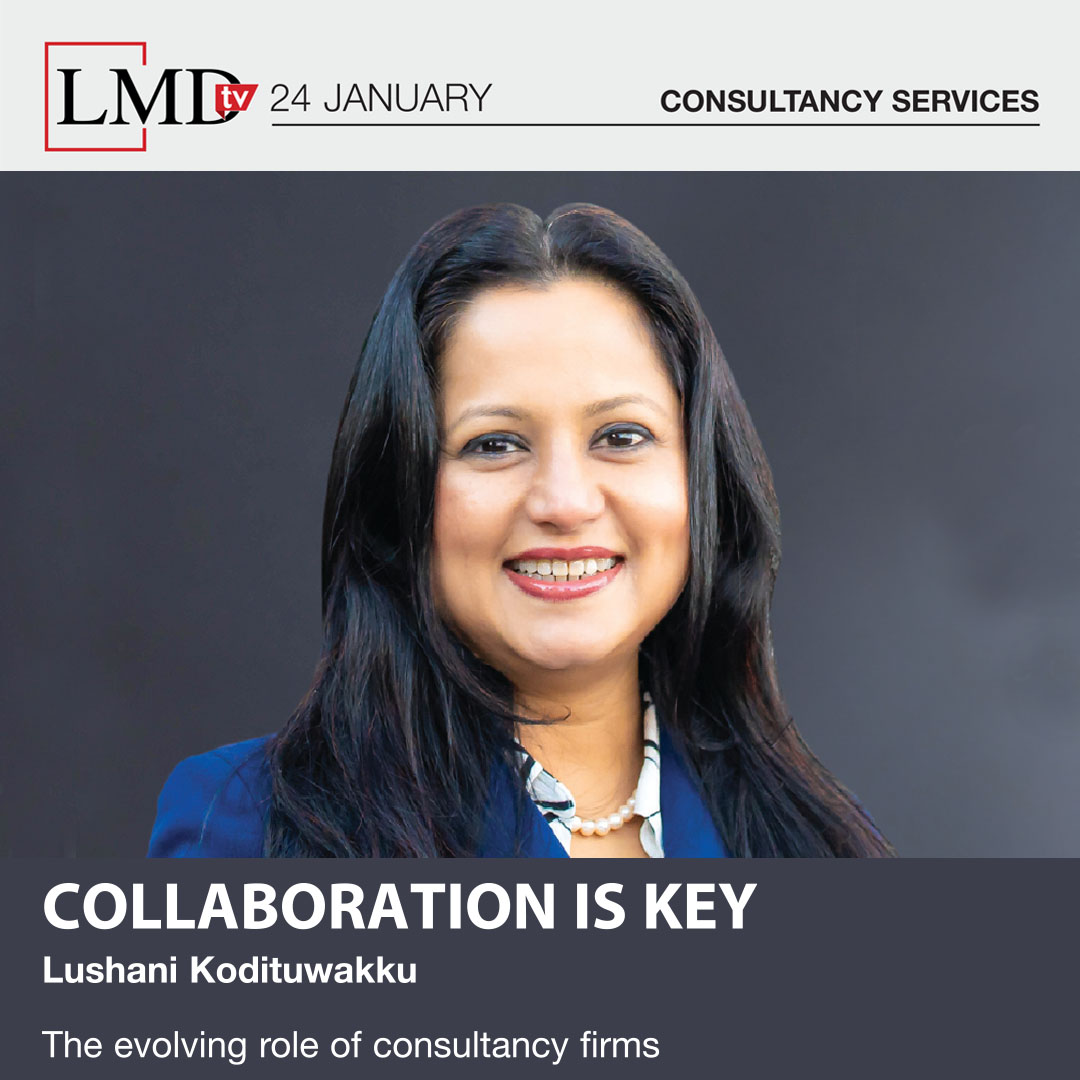 Consultancy has been an integral part of business for years. Yet today, the role of consultancy firms and consultants is changing along with corporate dynamics. “Consulting is about providing independent external advice,” the Managing Director of Luminii Consulting Lushani Kodituwakku explained, in a recent LMDtv interview.
Consultancy has been an integral part of business for years. Yet today, the role of consultancy firms and consultants is changing along with corporate dynamics. “Consulting is about providing independent external advice,” the Managing Director of Luminii Consulting Lushani Kodituwakku explained, in a recent LMDtv interview.
According to her, consultancy services have predominantly evolved in two areas.
She noted: “The first is the mindset. Traditionally, consulting was used by the bigger firms but today, more and more companies look to consultants. There has been a real shift in the mindset of CEOs and management teams – they value consultants who bring in external knowledge and insights. And there’s more acceptance of consultants addressing questions that they have internally.”
The second area is the expansion of consultancy beyond management consultancy, as she pointed out: “Under the overarching banner [of consultancy], you can clearly see sub-areas such as IT, ESG (environmental, social and governance), operations, HR, marketing and branding, commercial due diligence, cybersecurity and digital transformation consultancy.”
Kodituwakku also spoke about the two most essential ingredients in a client-consultant relationship – viz. trust and collaboration. Elaborating on the need for trust in this endeavour, she stated: “You need to build trust between the two parties early because the project will always depend on it.” Collaboration is another key facet. “When I set up Luminii Consulting, I felt there was a gap in the market where consultants would go in, do a job and leave,” she said.
“An ethos of mine has been to work with clients very collaboratively,” she explained, adding that “collaboration is what’s going to achieve success and a win-win [scenario] for both parties.”
Adhering to core business values such as integrity, fairness and professionalism is also vital for consultancy firms and corporates alike.
Kodituwakku noted: “We live in a very interconnected world so maintaining your reputation is key for any business anywhere in the world. Businesses that can maintain core values such as integrity, trust and collaboration will survive going forward.”
She offered several recommendations for businesses looking to hire a consultancy company, beginning with selection: “Very often, companies are driven to go with the known names. You need to do your research and identify who has the right credentials for the job; it’s the expertise you’re buying and it needs to be backed by the credentials of the company.”
Hiring a consultancy firm “that you can work with easily” is also important. “Collaboration is really important because it’s a two-way relationship – and it needs to work,” she averred.
She expanded on this by saying that “there’s no point in going with the most well-known firm and finding it difficult to work with. You must look at the firm, speak to the people who are going to do the job, see if you can work with them for a long period of time and whether you trust them enough to take their advice.”
Once a firm is selected, Kodituwakku advises providing a clear brief. There’s nothing more important than giving a clear brief to the consultants so they can build the scope of work based on it, she stressed, adding that discussing the methodology and research needed is equally important.
Other recommendations she offered include sharing as much information as possible with the consultants, having regular catch ups; and once the project is completed, ensuring that a proper presentation is conducted, followed by a strategy workshop.
Commending LMD on its Refresh Sri Lanka campaign, Kodituwakku highlighted the need for today’s consultants to go beyond merely helping client companies increase profitability: “Consultants now have a responsibility to also think about the impact [that organisational decisions] have on society and the local community.”


